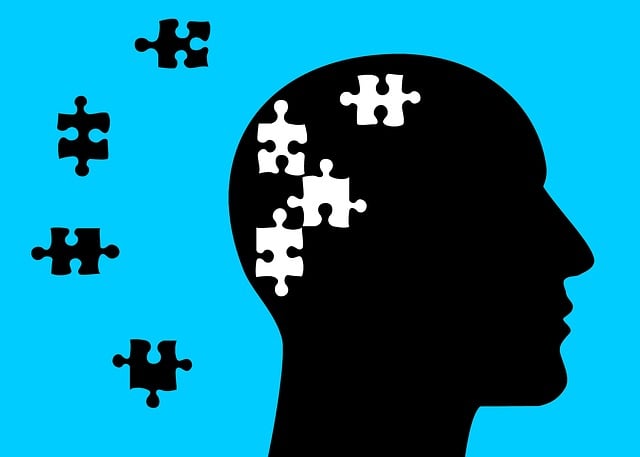Lakewood Children's Therapy emphasizes that mental illness stigma is a significant barrier to individuals seeking help and can severely impact their well-being. To combat this, they advocate for understanding and reducing stigma through education and awareness. Their strategies include normalizing conversations about emotions, encouraging early intervention, promoting self-care, and hosting community outreach events. They also offer targeted depression prevention and support groups, aiming to create a more inclusive society that embraces mental wellness without judgment, ensuring access to necessary support for healthier lives.
Mental illness stigma remains a significant barrier to seeking help, impacting individuals’ well-being and treatment outcomes. At Lakewood Children’s Therapy, we explore effective strategies to reduce this harmful perception. This article delves into understanding the profound effects of stigma on mental health, highlighting why addressing it is crucial. We present actionable steps and emphasize the transformative power of education, dialogue, and support groups in breaking down barriers at Lakewood Children’s Therapy and within our community.
- Understanding Stigma: Its Impact on Mental Health and Why It's Crucial to Address at Lakewood Children's Therapy
- Strategies for Reduction: Effective Ways to Combat Stigma in Our Community
- Creating Change: The Role of Education, Dialogue, and Support Groups in Breaking Down Barriers at Lakewood Children's Therapy
Understanding Stigma: Its Impact on Mental Health and Why It's Crucial to Address at Lakewood Children's Therapy

Stigma surrounding mental illness is a significant barrier to individuals seeking help and can have severe consequences on their overall well-being. At Lakewood Children’s Therapy, we recognize that understanding stigma is the first step towards reducing its impact. Mental health issues are common, affecting millions worldwide, yet societal perceptions often label them as weaknesses or personal failures. This negative perception can lead to individuals hiding their struggles, avoiding treatment, and experiencing heightened anxiety and depression.
By raising awareness and educating communities, we aim to foster an environment where individuals feel supported. Our approach involves empowering both patients and healthcare providers with knowledge about mental health conditions. This includes promoting burnout prevention strategies for healthcare professionals, as they play a vital role in encouraging Depression Prevention and Anxiety Relief. Through these efforts, Lakewood Children’s Therapy strives to create a more inclusive society that embraces mental wellness, ensuring individuals can access the support they need without fear of judgment.
Strategies for Reduction: Effective Ways to Combat Stigma in Our Community

Reducing stigma around mental illness is a collective effort that requires diverse strategies tailored to our community’s unique needs. One powerful approach is through Lakewood Children Therapy programs designed to educate and engage both young minds and their families. These initiatives focus on fostering mental health education by normalizing conversations about emotions, encouraging early intervention, and promoting self-care practices. By integrating confidence-boosting activities and skills training into these programs, individuals can learn to recognize and manage their mental well-being proactively.
Additionally, community outreach events, workshops, and peer support groups play a significant role in stigma reduction. These platforms provide safe spaces for sharing experiences, dispelling myths, and offering mutual support. Encouraging open dialogues about mental health struggles and successes can help build empathy and understanding. Depression prevention strategies targeted at at-risk populations, such as teenagers and young adults, have proven effective in early intervention and promoting resilience. Through these multifaceted efforts, communities can work towards destigmatizing mental illness and ensuring everyone has access to the support they need for a healthier, happier life.
Creating Change: The Role of Education, Dialogue, and Support Groups in Breaking Down Barriers at Lakewood Children's Therapy

At Lakewood Children’s Therapy, we understand that creating change in attitudes towards mental illness requires a multifaceted approach. Education plays a pivotal role by providing accurate information and dispelling myths surrounding mental health. Through workshops and seminars, healthcare professionals, parents, and the community can gain insights into various conditions, their symptoms, and effective treatment options. This knowledge empowers individuals to recognize signs of distress in themselves or others and seek help without hesitation.
Dialogue is another powerful tool. Encouraging open conversations about mental health normalizes these experiences and fosters empathy. Support groups, both within our therapy setting and in the community, offer safe spaces for individuals to share their journeys, gain support, and develop coping strategies. By integrating these initiatives—education, dialogue, and support—Lakewood Children’s Therapy aims to contribute to broader efforts in mental health policy analysis and advocacy, as well as public awareness campaigns development, ultimately working towards burnout prevention strategies for healthcare providers by reducing the stigma associated with seeking therapy.
In addressing mental illness stigma, particularly at Lakewood Children’s Therapy, we’ve explored understanding its profound impact and implementing effective strategies. Education, open dialogue, and supportive communities play pivotal roles in breaking down barriers. By fostering an environment where conversations about mental health are normalized, we can create a more inclusive and compassionate society for all individuals seeking therapy, ensuring better outcomes and improved well-being for everyone at Lakewood Children’s Therapy and beyond.












